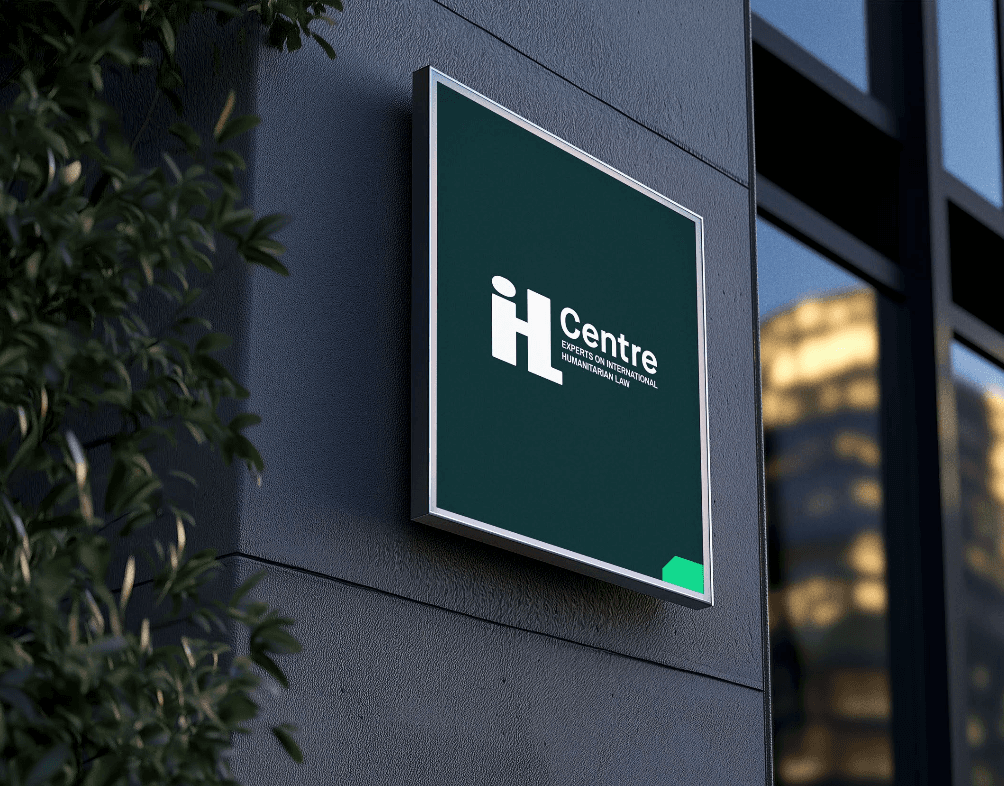
Reintroducing the IHL Centre
13 May 2025From the Director of the IHL Centre, Stephen Wilkinson
Over the past two decades, the IHL Centre has evolved in scope, modalities of working, name and structure, but our mission has remained consistent: to provide principled, expert legal advice and analysis rooted in International Humanitarian Law (IHL). From our beginnings as the International Humanitarian Law Resource Centre in Jerusalem to our identity as the Diakonia IHL Centre since 2019, we are now stepping confidently into our next chapter simply as the IHL Centre. Refreshed, but not new.
Over the years, one consistent principle has remained at our core: we are a specialized legal centre committed to supporting others, particularly within the humanitarian community. We view IHL as a vital, albeit limited, tool for protecting civilians in conflict zones.
We advocate for credible and protective application and interpretations of the law—believing they are essential to counteract the erosion of legal norms, the exploitation of legal exceptions, and the emergence of double standards. Our intent is not to push the law beyond its intended scope but to reinforce the fundamental purpose of modern IHL: upholding humanity amid conflict.
Our growth since 2017
Thanks to sustained support—especially from the Swedish International Development Cooperation Agency (SIDA)-the Centre became a multi-context initiative in 2017, extending our support to humanitarian and diplomatic actors in Israel/Palestine, Syria, and Mali. Through organic growth, our teams in Syria and Mali began to work more regionally, allowing us to also engage in contexts including Yemen, Iraq, Niger, Burkina Faso, and beyond.
In 2020, recognizing the need for agility, we transitioned away from building new country teams (in contexts like Myanmar, the DRC, and Somalia) to establishing a global team. This has enabled us both to work on global projects and to apply a cost-effective approach to engaging with actors in emerging or shifting conflict environments.
Today, we are a team of 28 professionals, including 20 international legal specialists, providing analysis and support across 20 conflict-affected contexts, meaning we are now one of the largest concentrations of IHL expertise in the world. Over the last 20 years, our widely respected legal analysis has been cited by UN rapporteurs, civil society organisations, and legal scholars and has supported several UN Commissions of Inquiry.
Through outcome harvesting we have been able to identify significant contributions to positive behaviour changes, such as the release of civilians in detention. We have provided IHL training and capacity building workshops to lawyers, judges, NGOs, media, and UN staff across the Middle East, Europe, Africa, and Latin America. We have successfully empowered key stakeholders at all levels to understand and utilise IHL principles to protect civilians and safeguard human dignity.
None of this would have been possible without the support of SIDA and ECHO (the European Commission Directorate-General for European Civil Protection and Humanitarian Aid Operations) but also the incredible dedication and hard work of our current team, as well as those who have worked with us over the years. There are too many to be able to thank all individually, but I would like to pay a particular tribute to Malin Greenhill and Jelena Plamenec whose contributions and leadership were key in facilitating our successful development.
Reflections
It has been and remains a profound privilege to lead a team of such committed and brilliant individuals. The journey has only underscored the need for greater collaboration and coordination—our sector still too often reflects territorial habits and approaches, which ultimately hinder us from achieving our shared goals.
As we enter this new chapter, we’re proud to continue offering our core services while also launching new initiatives and tools that reflect our values and vision:
- Our expert IHL Advisory Service, providing legal advice and guidance to humanitarian, media and diplomatic actors, as well as civil society.
- The Stockholm Manual, an innovative new tool to support IHL monitoring and advocacy.
- As a member of the Beyond Compliance Consortium, contributing to a better understanding of the dynamics of harm and need in armed conflict, and where legal frameworks sit in relation to those issues.
- The Inclusion Network Expert Group and upcoming Global Inclusion Report, championing the inclusive application and monitoring of IHL.
The future
As we step into this new chapter as the IHL Centre, in a crucial and extremely challenging moment for the basic standards set out under international law, our commitment and resolve are unwavering. We are today reintroducing ourselves with a renewed sense of purpose—to stand firm in the face of shrinking humanitarian space, funding challenges, and the persistent erosion of legal norms.
These challenges are very real, and they are growing. But so too is our determination. This moment is not just about rebranding—it’s about recommitting to collaboration, driven by our conviction that principled legal work can make a difference to protection, dignity, and justice, even in the most difficult settings.
As we do so, we keep one name close to our hearts, Thomas Assaker, a brilliant young lawyer who joined our team between 2019 and 2020 and sadly passed in a tragic accident in 2024. His passion for IHL and his commitment to supporting those affected by armed conflict remains an inspiration to us all.
We look forward to walking this path together—with partners old and new—using IHL as a powerful tool to achieve tangible impact—preserving human dignity by upholding legal norms.